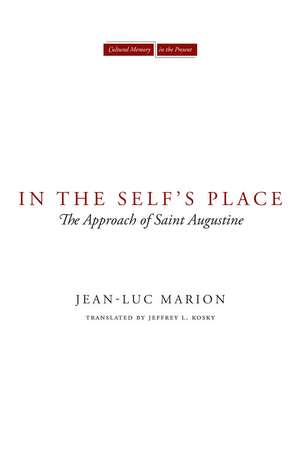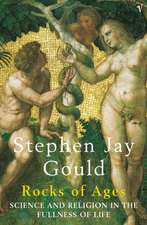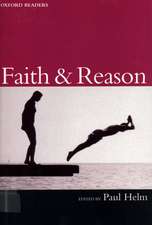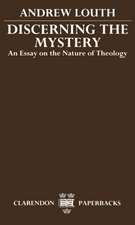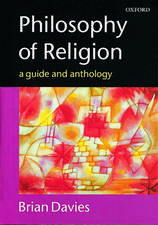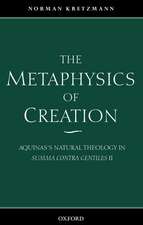In the Self's Place: The Approach of Saint Augustine: Cultural Memory in the Present
Autor Jean-Luc Marion Traducere de Jeffrey Koskyen Limba Engleză Hardback – 23 oct 2012
In the Self's Place is an original phenomenological reading of Augustine that considers his engagement with notions of identity in Confessions. Using the Augustinian experience of confessio, Jean-Luc Marion develops a model of selfhood that examines this experience in light of the whole of the Augustinian corpus. Towards this end, Marion engages with noteworthy modern and postmodern analyses of Augustine's most "experiential" work, including the critical commentaries of Jacques Derrida, Martin Heidegger, and Ludwig Wittgenstein. Marion ultimately concludes that Augustine has preceded postmodernity in exploring an excess of the self over and beyond itself, and in using this alterity of the self to itself, as a driving force for creative relations with God, the world, and others. This reading establishes striking connections between accounts of selfhood across the fields of contemporary philosophy, literary studies, and Augustine's early Christianity.
| Toate formatele și edițiile | Preț | Express |
|---|---|---|
| Paperback (1) | 202.99 lei 3-5 săpt. | +25.91 lei 6-12 zile |
| Stanford University Press – 23 oct 2012 | 202.99 lei 3-5 săpt. | +25.91 lei 6-12 zile |
| Hardback (1) | 708.98 lei 6-8 săpt. | |
| Stanford University Press – 23 oct 2012 | 708.98 lei 6-8 săpt. |
Din seria Cultural Memory in the Present
-
 Preț: 173.10 lei
Preț: 173.10 lei -
 Preț: 197.12 lei
Preț: 197.12 lei -
 Preț: 365.56 lei
Preț: 365.56 lei -
 Preț: 193.14 lei
Preț: 193.14 lei -
 Preț: 194.26 lei
Preț: 194.26 lei -
 Preț: 155.84 lei
Preț: 155.84 lei -
 Preț: 155.89 lei
Preț: 155.89 lei -
 Preț: 149.68 lei
Preț: 149.68 lei -
 Preț: 211.98 lei
Preț: 211.98 lei -
 Preț: 228.62 lei
Preț: 228.62 lei -
 Preț: 206.94 lei
Preț: 206.94 lei -
 Preț: 209.36 lei
Preț: 209.36 lei -
 Preț: 193.58 lei
Preț: 193.58 lei -
 Preț: 156.25 lei
Preț: 156.25 lei -
 Preț: 146.22 lei
Preț: 146.22 lei -
 Preț: 171.47 lei
Preț: 171.47 lei -
 Preț: 194.45 lei
Preț: 194.45 lei -
 Preț: 229.26 lei
Preț: 229.26 lei -
 Preț: 296.64 lei
Preț: 296.64 lei -
 Preț: 210.24 lei
Preț: 210.24 lei -
 Preț: 228.62 lei
Preț: 228.62 lei -
 Preț: 278.31 lei
Preț: 278.31 lei -
 Preț: 298.62 lei
Preț: 298.62 lei -
 Preț: 153.16 lei
Preț: 153.16 lei -
 Preț: 193.58 lei
Preț: 193.58 lei -
 Preț: 204.76 lei
Preț: 204.76 lei -
 Preț: 228.39 lei
Preț: 228.39 lei -
 Preț: 139.64 lei
Preț: 139.64 lei -
 Preț: 243.46 lei
Preț: 243.46 lei -
 Preț: 201.90 lei
Preț: 201.90 lei -
 Preț: 152.36 lei
Preț: 152.36 lei -
 Preț: 226.40 lei
Preț: 226.40 lei -
 Preț: 169.59 lei
Preț: 169.59 lei -
 Preț: 197.12 lei
Preț: 197.12 lei -
 Preț: 194.88 lei
Preț: 194.88 lei -
 Preț: 170.65 lei
Preț: 170.65 lei -
 Preț: 194.45 lei
Preț: 194.45 lei -
 Preț: 151.12 lei
Preț: 151.12 lei -
 Preț: 194.01 lei
Preț: 194.01 lei -
 Preț: 194.45 lei
Preț: 194.45 lei -
 Preț: 208.06 lei
Preț: 208.06 lei -
 Preț: 196.69 lei
Preț: 196.69 lei -
 Preț: 142.73 lei
Preț: 142.73 lei -
 Preț: 466.13 lei
Preț: 466.13 lei -
 Preț: 167.15 lei
Preț: 167.15 lei -
 Preț: 194.45 lei
Preț: 194.45 lei -
 Preț: 173.51 lei
Preț: 173.51 lei -
 Preț: 232.11 lei
Preț: 232.11 lei -
 Preț: 207.13 lei
Preț: 207.13 lei -
 Preț: 150.09 lei
Preț: 150.09 lei
Preț: 708.98 lei
Preț vechi: 875.29 lei
-19% Nou
Puncte Express: 1063
Preț estimativ în valută:
135.67€ • 139.96$ • 113.21£
135.67€ • 139.96$ • 113.21£
Carte tipărită la comandă
Livrare economică 27 martie-10 aprilie
Preluare comenzi: 021 569.72.76
Specificații
ISBN-13: 9780804762908
ISBN-10: 0804762902
Pagini: 448
Dimensiuni: 152 x 229 x 28 mm
Greutate: 0.68 kg
Ediția:New.
Editura: Stanford University Press
Colecția Stanford University Press
Seria Cultural Memory in the Present
ISBN-10: 0804762902
Pagini: 448
Dimensiuni: 152 x 229 x 28 mm
Greutate: 0.68 kg
Ediția:New.
Editura: Stanford University Press
Colecția Stanford University Press
Seria Cultural Memory in the Present
Recenzii
"Jean-Luc Marion's new book is a feast that should be savored by anyone with an interest in either the thought of Saint Augustine or in Marion's phenomenological philosophy . . . I think it would be difficult to speak too highly of Marion's achievement in this book . . . In the Self's Place is a landmark, advancing every position which it touches."—Andreas Nordlander, Anglican Theological Review
"In the Self's Place is astounding in its rigor both in terms of its use of the original Latin and in terms of its breadth of familiarity with the larger Augustinian corpus . . . In the Self's Place should be of particular interest to those readers who have strong interest in and familiarity with ongoing conversations in both theology and philosophy . . . [F]or all those who are stimulated by what contemporary philosophy and classical theology have to say to one another, this is, without doubt, an essential read."—Rico G. Monge, Reviews in Religion and Theology
"The confrontation of Heidegger with Nietzsche, the confrontation of Derrida with Heidegger, and now the confrontation of Marion with Augustine! In the Self's Place engages with Augustine's Confessions, one of the incomparable texts that open the intellectual and religious space we call 'the West.' Here Marion continues his critiques of the self and metaphysics, his analysis of praise, and his bold case for the univocity of love. Also he shows us something new: how his theory of the saturated phenomenon can be used to read a canonical narrative. A major achievement!"—Kevin Hart, University of Virginia
Notă biografică
Jean-Luc Marion is Greeley Professor of Catholic Studies and Professor of the Philosophy of Religions and Theology at the University of Chicago Divinity School, Professor of Modern Philosophy and Metaphysics at the University of Paris IV (Sorbonne), and a member of the Académie Française. Among his books to have been translated into English are Being Given (Stanford, 2002) and The Crossing of the Visible (Stanford, 2004).
Descriere
In the Self's Place is a phenomenological reading of Augustine that engages with modern and postmodern analyses of Augustinian philosophy.
